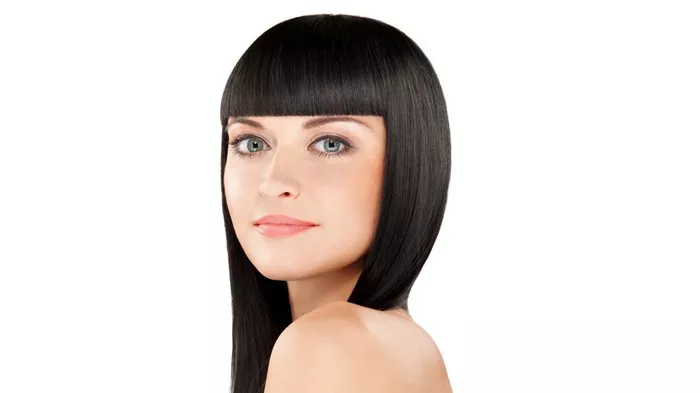Hair is not just a physical attribute; it’s a symbol of identity, culture, and confidence, especially for individuals with black hair. However, maintaining healthy and vibrant black hair can be a challenging task due to various factors like genetics, styling practices, and environmental elements. In the pursuit of longer, stronger, and thicker hair, many turn to hair growth vitamins as a solution. In this comprehensive guide, we delve into the world of hair growth vitamins specifically tailored for black hair, exploring their benefits, sources, and effectiveness.
Understanding Hair Growth:
Before delving into specific vitamins, it’s crucial to understand the basics of hair growth. Hair growth occurs in three main stages: anagen (growth phase), catagen (transitional phase), and telogen (resting phase). Each hair follicle undergoes these stages independently, with the majority of hair on the scalp in the anagen phase at any given time.
Several factors influence hair growth, including genetics, age, hormonal fluctuations, and overall health. While genetics play a significant role in determining hair texture, thickness, and growth rate, lifestyle factors such as diet, stress levels, and hair care routines also impact hair health.
Vitamins and Hair Growth:
Vitamins are essential micronutrients that play crucial roles in various bodily functions, including hair growth and maintenance. While a balanced diet rich in vitamins and minerals is vital for overall health, certain vitamins are particularly beneficial for promoting hair growth and preventing hair loss. Let’s explore nine of the best hair growth vitamins for black hair:
1. Vitamin A:
- Vitamin A is essential for cell growth and differentiation throughout the body, including the hair follicles.
- It helps produce sebum, the natural oil that moisturizes the scalp and keeps hair healthy.
- Food sources of vitamin A include sweet potatoes, carrots, spinach, and kale.
2. Biotin (Vitamin B7):
- Biotin is perhaps the most well-known vitamin for hair growth, often found in hair care supplements.
- It supports the production of keratin, a protein that makes up the structure of hair, skin, and nails.
- While biotin deficiencies are rare, supplementation may benefit individuals experiencing hair thinning or brittleness.
- Food sources of biotin include eggs, nuts, seeds, and leafy greens.
3. Vitamin C:
- Vitamin C is a powerful antioxidant that helps protect hair follicles from damage caused by free radicals.
- It also aids in the production of collagen, a protein that supports hair strength and elasticity.
- Citrus fruits, strawberries, bell peppers, and kiwi are excellent sources of vitamin C.
4. Vitamin D:
- Vitamin D deficiency has been linked to hair loss and other hair-related conditions.
- It plays a role in the hair follicle cycle and may help regulate hair growth.
- While sunlight exposure is a primary source of vitamin D, dietary sources include fatty fish, fortified dairy products, and mushrooms.
5. Vitamin E:
- Like vitamin C, vitamin E is an antioxidant that helps protect hair follicles from oxidative stress.
- It also improves blood circulation to the scalp, promoting nutrient delivery to the hair follicles.
- Nuts, seeds, vegetable oils, and leafy greens are rich sources of vitamin E.
6. Vitamin K:
- While less commonly associated with hair growth, vitamin K plays a role in maintaining healthy hair.
- It contributes to blood clotting, which is essential for wound healing on the scalp.
- Leafy greens, broccoli, Brussels sprouts, and fermented foods are good dietary sources of vitamin K.
7. Niacin (Vitamin B3):
- Niacin helps promote blood circulation to the scalp, ensuring that hair follicles receive an adequate supply of nutrients and oxygen.
- It also plays a role in energy metabolism, supporting the cellular processes involved in hair growth.
- Food sources of niacin include meat, poultry, fish, whole grains, and legumes.
8. Vitamin B6:
- Vitamin B6 is involved in the metabolism of amino acids, the building blocks of protein.
- Adequate protein intake is essential for hair growth, making vitamin B6 indirectly beneficial for hair health.
- Chicken, fish, potatoes, bananas, and fortified cereals are good sources of vitamin B6.
9. Folic Acid (Vitamin B9):
- Folic acid is necessary for DNA synthesis and cell division, including the cells in hair follicles.
- Deficiencies in folic acid have been linked to premature graying and hair loss.
- Leafy greens, citrus fruits, beans, and fortified grains are excellent sources of folic acid.
Choosing the Right Hair Growth Vitamins:
While incorporating these vitamins into your diet through whole foods is ideal, supplementation may be necessary for individuals with specific deficiencies or those seeking targeted hair growth support. When choosing hair growth supplements, consider the following factors:
1. Ingredients: Look for supplements that contain a blend of hair growth vitamins, minerals, and other beneficial nutrients.
2. Quality: Opt for reputable brands that prioritize quality and transparency in their manufacturing processes.
3. Dosage: Pay attention to the dosage of each vitamin in the supplement and avoid mega-doses that exceed recommended daily allowances.
4. Reviews and Recommendations: Read reviews from other users and consult with healthcare professionals for personalized recommendations.
Conclusion:
Achieving and maintaining healthy, vibrant black hair requires a holistic approach that encompasses proper nutrition, hydration, and hair care practices. While genetics play a significant role in determining hair characteristics, incorporating essential vitamins into your diet or supplementation regimen can support optimal hair growth and vitality. By harnessing the power of vitamins A, Biotin, C, D, E, K, Niacin, B6, and Folic Acid, individuals with black hair can unlock the secret to luscious locks that exude confidence and beauty.


